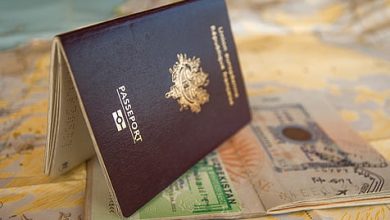When Did African Americans get the Right to Vote

When Did African Americans get the Right to Vote
Voting rights for African-American males were established in 1870, but for African-American women, they were practically abolished until 1965.
Some states had a limited number of free blacks (male property owners) who were eligible to vote at the time of the Constitution’s ratification in 1789.
Reconstruction of the White House and the Black Codes
Rebuilding the Union after Abraham Lincoln‘s assassination in April 1865 fell to his successor, Andrew Johnson.
John Wilkinson Johnson was born in North Carolina, and his Reconstruction policy was very lenient toward white Southerners because of his strong support for state’s rights.
He demanded that the former Confederate states ratify the 13th Amendment and swear their allegiance to the United States, but otherwise allowed them to reconstruct their post-war administrations.
When most Southern state legislatures passed draconian legislation known as “Black codes” in 1865-1866, they restricted the ability to vote and other basic liberties to their African-American residents.
Conservative Republicans in the House of Representatives were enraged, believing that the Black Codes re-establishes slavery in all but name.
The Civil Rights Bill, approved by Congress in the early months of 1866, attempted to expand on the 13th Amendment and provide citizens’ rights to African-Americans.
It was the first time in American history that important legislation was overridden by a presidential veto, and the measure was rejected by Johnson because he opposed government intervention for previously enslaved individuals.
Constitutional Amendments 14th and 15th
It was in March of 1867 that the period of Radical Reconstruction, or Congressional, started with the passing of a second Reconstruction Act (again over Johnson’s veto).
More than a quarter of the state’s adult population voted in the decade after Johnson’s death, voting 22 black men to the U.S. Congress (two in the Senate) and helping to elect Ulysses S. Grant, Johnson’s Republican successor, in 1868
Slaveholders were given citizenship and “equal protection of the laws” in 1868 after the 14th Amendment was enacted by Congress and ratified by the states in 1866.
Voting rights couldn’t be “denied or curtailed” by the US or any state because of their race, color, or prior servitude status, the 15th Amendment was approved in 1870 and became the last so-called Reconstruction Amendment.
During reconstruction, the South had its first multiracial democracy, albeit state governments remained mostly controlled by whites.
There was a continual fear of intimidation and violence from the Ku Klux Klan or other white supremacist organizations that targeted Black politicians.
Also Read: When’s Black History Month
From Post-Civil War Reconstruction to the Present-Day
While the 15th Amendment prohibited racial discrimination in the voting process, it left the door open for states to choose their own criteria for suffrage eligibility.
In the decades after Reconstruction, Southern state legislators utilized such qualifications—including literacy tests, poll fees, and other discriminatory practices—to disenfranchise a large percentage of Black voters.
A system of segregation known as the Jim Crow laws, which was in force for almost a century, was enacted by state legislatures controlled by whites as a consequence.
Securing voting rights for African Americans in the South was a major concern of the civil rights movement in the 1950s and 1960s.
While the 1964 Civil Rights Act eventually ended segregation in schools and other public places, it failed to address the issue of discrimination in voting rights..
State and municipal authorities in Selma, Alabama in March 1965 brutally attacked hundreds of nonviolent protesters led by Martin Luther King Jr. and other civil rights activists.
Lyndon Johnson signed the Voting Rights Act later that year, which prohibited literacy tests and other techniques used to disenfranchise African American votes.
Because poll taxes had been abolished by the 24th Amendment for federal elections in 1964, the U.S. Supreme Court held in Harper v.
Virginia Board of Elections that such taxes were unlawful in state and municipal elections as well in 1966.
Voter registration among eligible African-Americans climbed from 23% to 61% after the adoption of the Voting Rights Act.
Adult Blacks in the South voted at a higher rate than those elsewhere in the country by 1980, according to historian James C. Cobb, who stated in 2015 that there were more Black persons in public office in the South by the mid-1980s compared to all other regions of the country put together.
For the first time in history, more African-Americans than whites cast ballots in the reelection of Barack Obama, the country’s first African-American president, in 2012.
The Supreme Court ruled 5-4 in Shelby v. Holder in 2013 that the Voting Rights Act’s Section 5 was unconstitutional because it required states with a history of voter discrimination to obtain federal permission before modifying their election rules.
Restrictions on voting in several states were put in place after the Supreme Court’s decision to uphold the Voting Rights Act of 1965.
Critics allege that such measures, like poll taxes and literacy tests before them, unfairly impact poor, elderly, Black, and Latino voters, while supporters believe they are aimed to prevent voting fraud.





